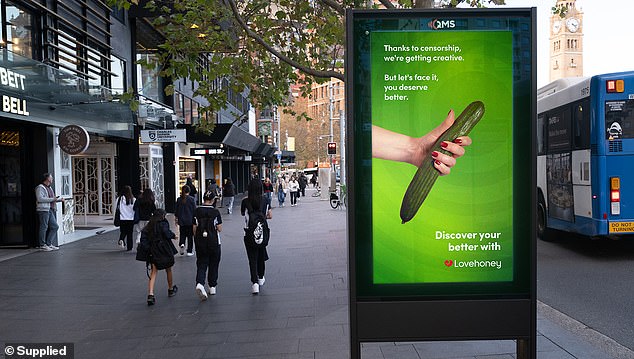Sex expert issues urgent warning against using household items in the bedroom after Aussies revealed eye-watering list of DIY toys they’ve tried
Australians are swapping sex toys for light bulbs, vacuum cleaners and even kitchen utensils, in a shocking trend that is sweeping the country.
But choosing to use household items instead of a toy meant for masturbation is dangerous, warns sexologist Christine Rafe.
The expert told FEMAIL that she is not one to criticise other people’s preferences in the bedroom. However, she urges men and women to think twice before using a hairbrush or chilled vegetables during their solo performances in the bedroom.
“It is not uncommon for people to present to the emergency room with household items that are lost, stuck or even broken,” said Ms. Rafe.
“While I certainly support curiosity and creativity when it comes to sex and pleasure, household items like these are not designed for intimate use and can lead to injury or infection,” she added.
The list of household items people used was long and included everything from electric toothbrushes to spoons, pens and even broom handles.
Pillows and pillowcases, shower heads, gloves, electric shavers, washing machines and lollipops were also on the list of homemade sex toys.
Ms. Rafe said she doesn’t want to take away anyone’s sweet tooth, but she advises against using the substances on the list to achieve an orgasm.
“There is a lot of room for error when abusing household items for pleasure. As a sex therapist, I would not recommend using a household item in place of a sex toy”
She admitted that she was shocked by the fact that so many people use delicate glassware in their bodies in search of pleasure.
According to a survey by retailer Lovehoney, 34 percent of Australians admit to using everyday objects when masturbating.
The study found that two percent of Australians suffered serious medical consequences after using household items, but experts suspect the actual number is significantly higher.
“Many people may feel embarrassed to report these types of incidents, but it highlights the importance of using safe, specially designed sex toys to avoid potential accidents,” she said.
‘When we talk about sensitive areas and the use of products that are not fit for purpose, many of these [items] may have consequences.’
Ms Rafe said cost of living pressures and limited access to safe sex toys have led to more people experimenting with items they have lying around the house.

The list shocked Lovehoney staff so much that they used it extensively in a recent advertising campaign
“Although we still consider the use of sex toys as normal, shame and embarrassment when purchasing them still play a role,” she said.
‘Some people use these objects to explore specific aspects and find that certain household items play into their unique fantasies.’
This is confirmed by the fact that people download cheap or free vibrator apps for their phones.
She said apps like this have been downloaded more than five million times on the App Store and Google, proving that using a phone for masturbation “has become so common that apps like this exist.”
Ms. Rafe said that masturbation is something to embrace, but it must be done safely.
“It is a healthy part of a balanced lifestyle and can provide several benefits not only for mental health but also for general wellbeing, such as stress reduction, better sleep and improved mood,” she said.
The Lovehoney team were so shocked by the homeware trend that they featured some of it in adverts.
They unveiled a series of ‘unbannable’ billboards across Australia, encouraging customers to avoid using household items, with the slogan: ‘You deserve better.’
Ms Rafe reminded those using less sophisticated substitutes such as vegetables to throw them away after use.
“Our research found that one person admitted to having the vegetable, a carrot, in his evening meal,” she said.
“That is something we would not approve of.”
